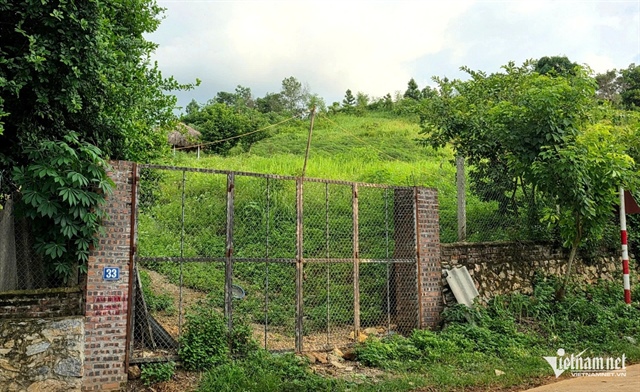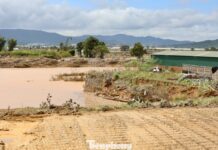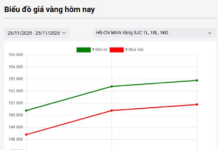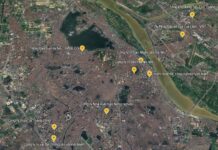In recent times, some localities have experienced a situation where citizens apply for land-use rights or land-use conversion but withdraw their applications after receiving the financial obligations from the tax authority. The financial obligations are often too high for them to afford.
The Land Registration Office allows citizens to withdraw their applications upon request. However, the tax authority still imposes the previously notified financial obligations, along with late payment penalties.
Regarding this issue, the Tax Department (Ministry of Finance) stated that according to the Law on Land, Joint Circular No. 88/2016/TTLT-BTC-BTNMT, and Decree No. 126/2020/ND-CP, taxpayers submit their dossiers for determining financial obligations related to land use fees at the one-door mechanism agency where the land is located (Natural Resources and Environment Department).
The tax authority determines the financial obligations of taxpayers based on the information on the information transfer slip and the accompanying dossier.
In cases where the Natural Resources and Environment Department determines that the dossier falls under the category of withdrawal or cancellation and makes a request for the retrieval and adjustment of the information transfer slip, the tax authority will adjust the notification of financial obligations accordingly.
 Reality when converting land use purposes, high taxes make many people unable to afford it. Photo: N.L |
For specific cases, the Tax Department will request the Provincial Tax Department to coordinate with the Natural Resources and Environment Department to handle them according to regulations and authority.
Moreover, the Tax Department also stated that, from August 1, 2024, according to the provisions of Clause 2, Article 21 of Decree No. 103/2024 of the Government on land use fees and land rent: The tax authority shall, based on the information transfer slip and the accompanying dossiers, transferred by the Land Registration Office, or the agency with the function of land management, or the one-door mechanism unit, determine the financial obligations related to land use fees of households and individuals in accordance with the law.
Thus, in case of any changes in information affecting the determination of financial obligations, the Land Registration Office or the agency with land management functions shall be responsible for transferring the information for the tax authority to adjust the financial obligations accordingly.
According to the tax authority, the current law on collection of land use fees and land rent (Clause 6, Article 48 of Decree 103/2024 of the Government) stipulates that the People’s Committee of provinces and municipalities shall, based on the procedure for land allocation, land lease, recognition of land use rights, extension, adjustment of duration, conversion of land use purpose, as well as land price determination for calculation of land use fees and land rent in accordance with the Government’s decrees guiding the Land Law and the Law on Prices.
At the same time, this decree also stipulates the procedure for calculating, collecting, and paying land use fees and land rent, serving as a basis for localities to build and promulgate procedures for circulating dossiers to determine financial obligations related to land in a practical manner.
Currently, the tax authority has implemented electronic information exchange with the Natural Resources and Environment Agency (now the Agriculture and Environment Agency) in receiving and returning results of interconnected administrative procedures related to land. Accordingly, the receipt and return of results to citizens are performed at the Agriculture and Environment Agency.
In the future, the Tax Department will continue to coordinate with the National Data Center (C12) and the Ministry of Agriculture and Environment to redesign the procedure and implement the interconnected administrative procedures related to land on the National Public Service Portal according to the upgrade roadmap of the portal.
Nguyen Le
– 12:11 24/08/2025
Unleashing Private Enterprise: Unblocking a Host of Projects
The business community representative expressed that private entrepreneurs have never been recognized so clearly by the Party and the State as they are today, especially through resolutions 57, 59, 66, and 68. This is highly encouraging, but for the resolutions to have a practical impact, immediate solutions are needed to address the challenges and obstacles faced by private enterprises in their current projects.













































